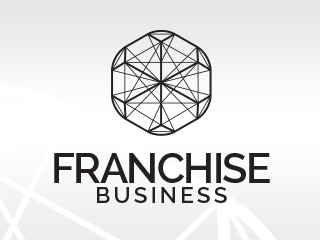
Forging a life for himself from the tatters of the war-torn Middle East, Abraham Hatoum arrived in Australia with the most basic English but an ambition to study and the dream of owing his own business.
“I learned the art of business from my Dad,” Hatoum says. But it was the young Abraham who got friends together at the refugee camp and built a cart to sell orange juice outside the army barracks, a move that inspired the dispirited adults in the camp to take their own steps in setting up small business initiatives.
And it’s an ability to inspire others that continues today, with emails and letters of congratulation on Abraham’s recent ethnic Australian award that reveal how his story has had an impact on individual lives. Some of the tailors employed in the LookSmart Alterations’ outlets are themselves former refugees.
Hatoum, managing director of franchise clothing alterations business LookSmart Alterations, was awarded the 2010 Ethnic Business Award in the large business category, for personal and business endurance through hardship, success and contributions to the community.
“Who would have thought that a refugee who lived in a camp would be here today? I was born to a Palestinian family who was forced to live in squalid conditions amongst chaos and violence. I had no identity and no real home. Members of my family were taken from us violently and my father was taken from us when I was 11. I was almost beaten to death and left with broken bones and later I suffered a serious injury when a bomb exploded near me. A near fatal victim during numerous attacks, I survived a war-torn Lebanon,” Hatoum explains.
“Every day I am amazed and thankful for the transformation – from boy to man — from poor to privileged. Every day I am thankful that I am a dreamer — a visionary. Dreams do come true and my life is a testament to that belief.”
So how did it all start?
Hatoum arrived in Australia on a humanitarian visa, was supported by the Palestinian community in Sydney and studied hard to get to the University of New South Wales. Thanks to a wedding gift of $4000 he was able to set up his own tailoring business while still studying for his business degree, working seven days a week to establish himself in a new country and raise a family.
“My brother-in-law ran a clothing business in Parramatta. I was at university and I helped him and learned the business at the same time. I opened my tailoring business in the CBD because I saw the potential there. That’s why I called the business CityWide, I never thought it would be national – and now international!
“I did extremely well, and when I graduated I decided to open across Australia. To protect the business I needed to think outside the square and realised that shopping centres work as a barrier to entry, there’s usually only one dry cleaner, one tailor.
“The first outlet was at Chatswood Chase. I had to keep selling them the concept, that this wasn’t a back room business. They accepted, but converted the baby-changing toilet into our premisesÉit shows you how I started. The perception was that this is a cottage industry, and we don’t have service. But itÕs an integral part of the fashion industry; we can increase sales by being in store and doing alterations the same day for customers. Now, our store is next to Versace.
“With a foothold in the centres, we went into four states in one year and opened 10 branches. That was the wrong strategy, I should have expanded one state at a time. It was extremely hard to control branches across Australia and the costs were very high as company-owned stores.”
The revolution came with the move to franchise the concept, which Hatoum did in 2000. “I was looking at McDonalds — it’s run by people who are really kids themselves and so successful it can be operated by anyone.
The franchising advantage
Our outlets are operated by entrepreneurs, and are dependent on processes and manuals. By creating a business that relies on systems, itÕs better than relying on people,” he says. “It’s a co-operation between franchisee and franchisor and a win win scenario. A lot of tailors have been successful but they haven’t matched our turnover. Franchising is an advantage,” he says.
Hatoum offered franchisees a good concept, supplier discounts and affordable rents. Four years ago the name changed to LookSmart Alterations to better reflect the business and its role within the fashion industry.
“Recently we’ve joined the Association of Image Consultants International. I want to have my people become fashion stylists. The name change is a perfect fit,” says Hatoum.
“I am motivated by a strong desire to share my story with the hopes that my journey will inspire other refugees. To be successful in life you have to begin with the end result in mind. Believe in your dream and with determination and perseverance, that dream can be achieved regardless of hardship and difficulties. Our end goal is to have 1000 branches around the globe by 2020. I know I will achieve this goal. A passionate heart can achieve anything”.

